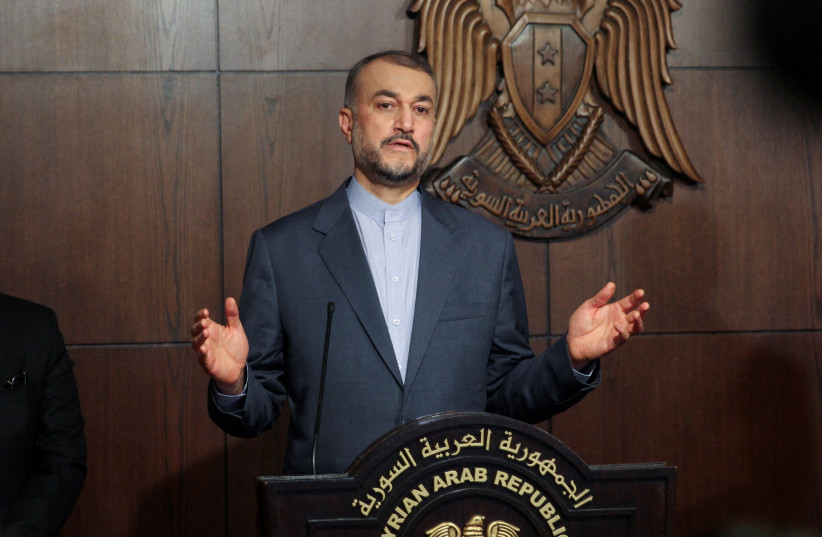Hossein Amirabdollahian, Iran’s Foreign Minister, arrived in Damascus over the weekend, according to Iranian reports. Iran’s Tasnim News, considered to be tied to the Islamic Revolutionary Guard Corps (IRGC), reported that he was in the Syrian capital on a “regional trip” from Beirut.
The “latest developments in Syria, especially in relation to Ankara and the development of economic and social relations between Iran and Syria, was one of the most important topics of the dialogue between the foreign ministers of Iran and Syria,” according to Iranian media.
The reference to Turkey is relevant to earlier reports over the last several days where Iran expressed its support for Ankara to reconcile ties with the Syrian regime. Turkey, Iran and Russia are part of the Astana process, the stated goal of which is to bring Syria some much-needed peace and quiet after years of war.
This peace will come at the expense of most of the people living in the embattled country,however, yet it is what the regional powers are pushing toward. Part of this peace process would include the removal of the US from Syria.
Regarding Israel, the three countries – Iran, Turkey and Russia – hold differing views. Iran is a foe of Israel and wants to use Syria as a launchpad to target it; Russia wants to preserve the Syrian regime as it is now for influence in the region; Turkey wants to remove US forces so that it can attack Kurds in Syria.

Turkey has increasingly hinted it wants to have better ties with Israel, but it is unclear if Iran’s backing of Turkey is designed to get the two countries back on the same page in Damascus – backing Hezbollah and bashing Israel.
Amirabdollahian’s visit to Damascus has larger regional implications as well. Iran supports Hezbollah and is trying to gauge where the Syrian regime is in terms of its ability to influence Turkey and the region at large.
Syria would like to see more high-level Iranian visits, including by Iranian President Ebrahim Raisi. Iran, which is currently more isolated, is also interested in being more involved in regional dealmaking.
What does this mean? Iran plays a significant role in Iraq, seeing it as a pathway to discussions with Jordan, Saudi Arabia and Egypt. It also knows that the Gulf States are keen on repairing relations with Syria. Hence, Tehran thinks its support of the Syrian regime could pay off.
Iran reduces oil exports to Syria
Meanwhile, The Wall Street Journal reported over the weekend that Iran reduced its supply of cheap oil to Syria. This means that the Islamic Republic no longer feels it needs to supplement the economic failure of the Syrian regime and help the Syrian people.
Iran now wants to squeeze Syria because it is suffering from its own economic problems. Syria’s regime cannot afford higher prices and it’s not clear what this means for Damascus. Perhaps Tehran will ask Damascus to “pay” in some other way, like hosting more drones and missiles – which can threaten the Jewish state.
It is also entirely plausible that Iran’s overall goals remain hidden and that, if reports are true that it is asking for more money for oil up front, other plans are afoot.
